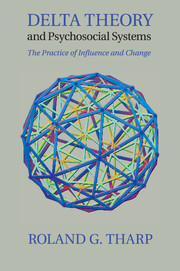Preface
Published online by Cambridge University Press: 05 December 2011
Summary
The Autodidact and the Community of Scholars
This book’s work was not conducted in isolation but was intensely psychosocial. It could not have been otherwise, as its domain of inquiry is the acquisition of behavioral and attitudinal patterns, the building of the mind, and the building of consciousness itself – which results from intensely social processes, processes that do not cease during life.
However, as a young man, I had a period of exclusively self-directed learning. Like most autodidacts, I no doubt developed some idiosyncrasies. A decade of formal education thereafter would seem sufficient to correct them, nevertheless the author of a theory purporting to unify across such a large domain can hardly deny some measure of peculiarity. The autodidact is subject to a society of authors who do not engage him in dialogue. In formal education, some dialogue is provided, and although never enough, interpretation of facts received and activities endorsed is subject to negotiation, explanation, and socialization. Not so for the autodidact.
- Type
- Chapter
- Information
- Delta Theory and Psychosocial SystemsThe Practice of Influence and Change, pp. xiii - xviiiPublisher: Cambridge University PressPrint publication year: 2011

